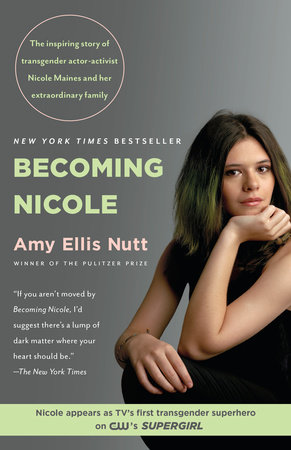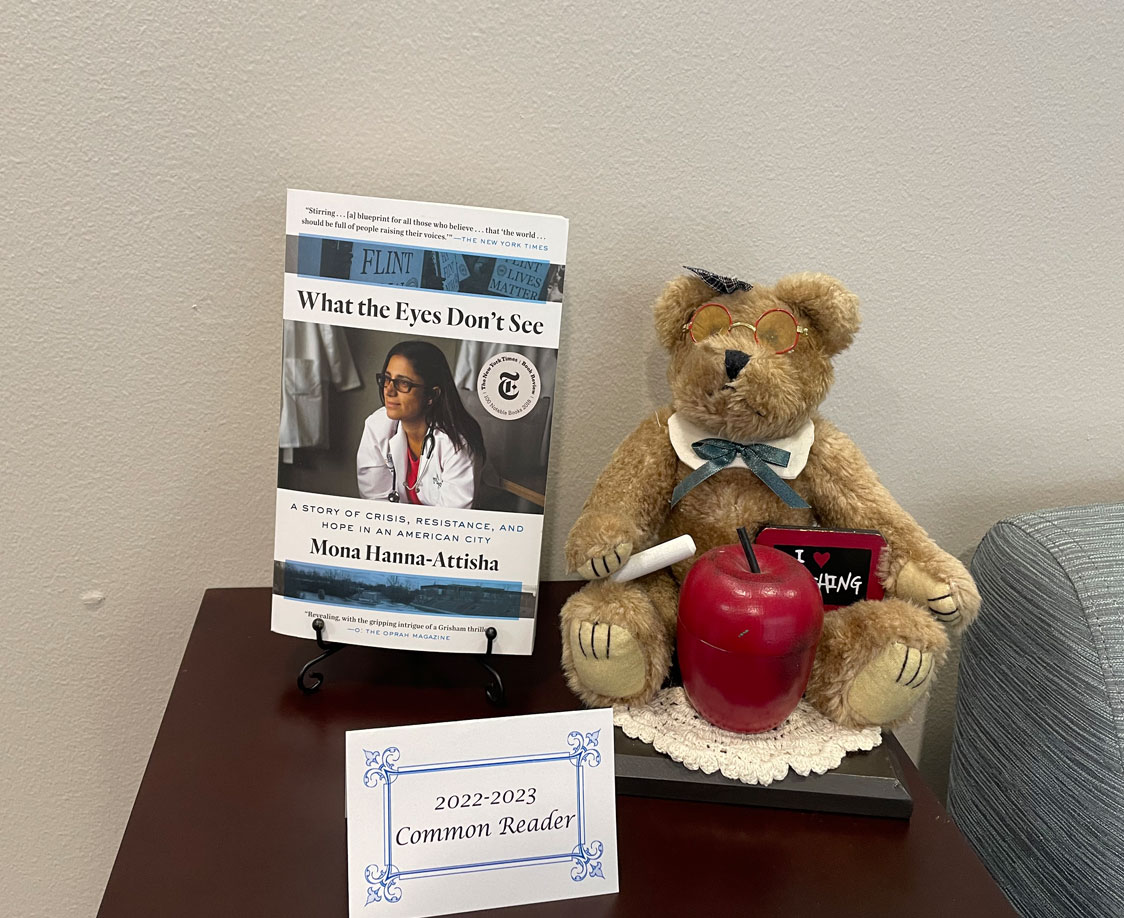Common Reader program unveils new book at final spring event
Since 2014, UHCL has been the site of yearly discussions and events centered around a book chosen as part of the Common Reader program. This year’s Common Reader came to an end April 19 at an event filled with discussion of topical issues and the revealing of what’s to come from the program.
The first half of the event was the culmination of the 2021-2022 Common Reader, with municipal Judge Phillys Frye being interviewed by Carlo Mazziotta, sociology major. The second half of the event saw the unveiling of the new Common Reader book.
For Anne Gessler, coordinator for the common reader program, this event was one that brought the Common Reader’s themes full circle, demonstrating the purpose of the program.
“The objective of the Common Reader program is to spark conversation across differences,” Gessler said. “We really invest in and celebrate people coming together and thinking about their passions and what their interests are and how that’s reflected in current conversations we are having as a nation and really thinking about their place and role in our society. So we try to get not just first year students but all students connected to community leaders and faculty and staff with expertise in the topic we are discussing that year. Therefore we can get them talking about these important issues so hopefully students feel like they have a stake in these issues and conversations. It’s not trying to be didactic or one talking head just talking about issues. We’re really trying to get people invested in these issues that have relevance to all of us.”
The past year’s Common Reader Book was “Becoming Nicole,” by Amy Ellis Nutt, which tells the story of Nicole Maines and her struggle growing up as a transgender girl. With this book being the basis for Learning Frameworks students for the academic school year, students and readers found themselves discussing and participating in activities based on the issues in the book.
“All of the presentations, panels, movie discussions and creative projects the students did had to do with themes of that book which were about gender identity in our society,” Gessler said.
“Becoming Nicole” was chosen using the annual system for choosing the new Common Reader book, inviting the Clear Lake community to give suggestions while also evaluating the book’s ability to spark conversations about citizenship, community, identity and the debated topics of today.

“For ‘Becoming Nicole’ we really thought that given that transgender issues are so in the news right now especially here in Texas, we thought that this would have been a good title to sink our teeth into and think about policy making and how it affects citizens of our state,” Gessler said.
The event was attended by learning frameworks students, community members, faculty, administrators and staff. After an introduction by UHCL President Richard Walker and Glenn Sanford, dean for the College of Human Sciences and Humanities, Judge Frye was introduced and interviewed by Mazziotta.
Frye is the first openly transgender judge in the United States, having been sworn in as Associate Municipal Judge for the city of Houston in 2010.
The Frye interview was made possible by Common Reader committee member Beth Merfish, department chair of liberal arts and associate professor of art history. Merfish and Frye serve on the City of Houston Women’s Commission, of which Merfish is the inaugural chair.
“Because of our existing relationship and her generosity, she was happy to speak,” Merfish said. “Judge Frye is a pioneer who has lived openly as a trans woman for more than 40 years. She serves as an example to all of us of courage and advocacy and reminds us that each of us can be an exemplar of justice and equity by living as our true selves and inviting others to do the same.”
Mazziotta was nominated to interview Frye by Amy Lucas, associate professor of sociology.
“I am a member of the Common Reader Committee, and when it was proposed that a student interview Judge Frye, I immediately nominated Carlo Mazziotta,” Lucas said. “I thought Carlo would be perfect in the role; in my classes, he always generated very strong and rich questions for discussion and demonstrated a very strong interest in studying and exploring the role gender plays in our lives. It seemed like the ideal fit!”
For Mazziota, the experience of interviewing Frye was one he found to be both exciting and fruitful.
“I have a background working with big personalities, specifically those with lots of anecdotal histories,” Mazziota said. “One of my favorite things to do is to listen to people’s stories and I was happy that Judge Frye was so eager to share and liberal with her knowledge. I believe it is my queer generation’s responsibility to take seriously these stories and not forget that our current personhood liberties were established and scaffolded by our contemporary predecessors who are still doing the important work today.”
The past school year has left Gessler feeling the Common Reader’s impact on students.
“I’ve just been really impressed with my students and how open minded and they have been invested in coming to class and events from a place of curiosity and empathy and learning,” Gessler said. “Even if people have never really thought about these topics or have a very particular stance, I have just been blown away by how hungry my students are to talk to people, have conversations, sometimes difficult conversations and really learn from each other. That’s what I saw happening at the Judge Frye talk. People were there to learn and celebrate.”
Lucas found the event to be one that shows just how vital it is to discuss modern issues.
“I think events like the conversation with Judge Frye are incredibly important for our campus community as they foster communication and dialogue about topics that are incredibly relevant to all of our lives,” Lucas said. “I highly encourage the campus community to attend Common Reader Events; I think the events offer very unique opportunities — how many campuses, for example, have been able to host a dialogue with the first openly transgender judge in the world?”
The New Common Reader revealed
The common reader for the 2022-2023 academic school year was revealed at the end of the event: “What the Eyes Don’t See” by Mona Hannah-Attisha.
https://www.youtube.com/shorts/rGZwcyxJnPY
The book tells in creative nonfiction fashion how scientists, researchers and community leaders came together to uncover the poisoning of water in Flint, Michigan and their quest to expose this discovery to government officials.
“We think that this is a really important book for us in Houston to study because Houstonians are also grappling with their own issues around water quality and air quality and the relationship between humans and the environment,” Gessler said. So we think a lot of different campus and community members will get engaged with this issue, from the study abroad groups, leadership and government. There is a lot they can take from this issue.”
With the new Common Reader book set to be studied in the fall, Gessler is ready for the lessons and conversations the new book will spark.
“I always feel really excited when we reveal the new book because it gives me the chance to work with new students,” Gessler said. “It also new opportunities for collaboration and ideas for events, as well as learning about aspects of our state I haven’t thought about before. I’m really excited for this book because it provides another opportunity for interdisciplinary conversations and it’s so relevant today thinking about our role in the environment and the role we want Houston to play in making our world livable for everybody.”
The fall semester shall see the program continue to provide experiences Gessler feels are essential in higher education.
“One of the most important aspects of university education is the opportunity for civic discourse, having conversations with people you wouldn’t ordinarily meet, learning about them and learning about yourself,” Gessler said. “That is the whole purpose of the Common Reader program.”


